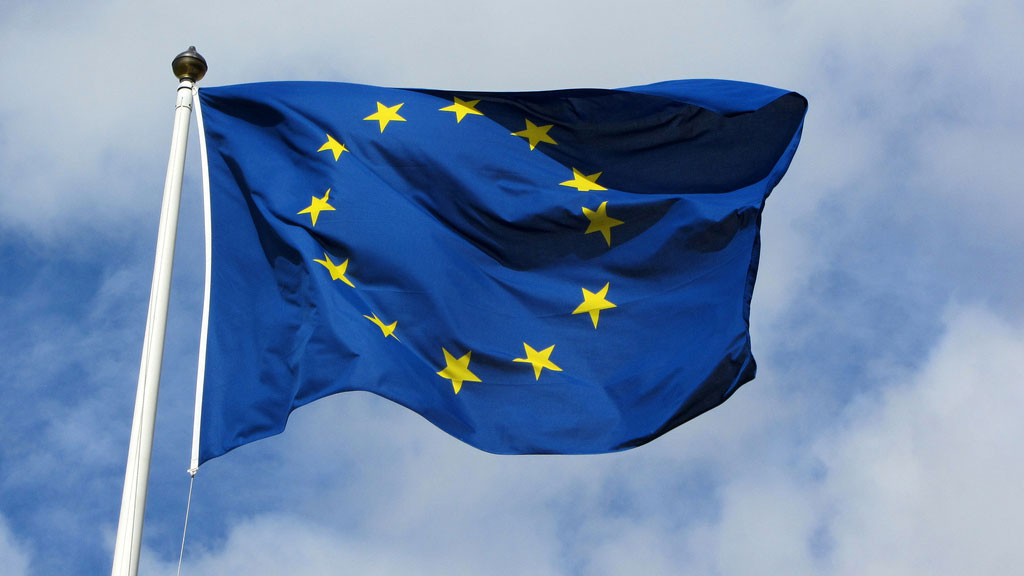LONDON — The morning after the United Kingdom’s referendum on whether to remain in or leave the European Union, arts organizations, artists and trade associations expressed a mix of alarm, worry and hope for new opportunities over the vote’s results, in which 52 percent of voters opted to leave. An added concern was Prime Minister David Cameron’s decision to resign by the fall, which has roiled political and economic waters around the world.
Especially facing increased difficulties in the wake of the Brexit, however, is the art market. Even before the milestone vote, both Christie’s and Sotheby’s posted lackluster results for their summer art sales in London. Summer, of course, heralds the art season in England with a lineup of significant fairs such as Olympia, Art Antiques London, Masterpiece London and London Art Week. London has long worn the mantle of Europe’s art capital, and some experts now are predicting that with the drop in the pound sterling fewer artworks will come to market as consignors become increasingly nervous.
On its website, the Art Fund, the UK’s chief organization supporting its museums and galleries, posted its concern about the referendum’s results, saying, “We are deeply concerned about what leaving the EU will mean for culture in the UK.”
Stephen Deuchar, director of Art Fund, said, “As the national fundraising charity for art, Art Fund is deeply concerned about the impact that leaving the EU will have on culture in the UK, and particularly on museums and galleries. At one level there is obviously now great financial uncertainty — the effect on European funding streams for the arts, for example — but quite as important is the potential effect on the spirit that drives a myriad of international partnerships in the arts. These are driven at heart by the principle of Britain as a collaborative component of, and participant in, a vibrant European culture. We must work hard to keep this spirit alive, regardless of politics.”
In a tweet, Ed Vaizey, MP, the UK’s minister of state at the department for culture, opined, “My constituency voted Remain, but nation has spoken. We need to respect the result and work to ensure a great future for our country.”
Museums Association director Sharon Heal was quoted by Apollo, the international arts magazine, as saying that the “economic fall-out…could have consequences for the sector” and reiterating the importance of working together “with our partners internationally — in Europe and further afield.” She also emphasized the community role of museums within Britain. “Immigration was clearly a huge issue in the referendum and many people have questions doubts and fears on this subject. Museums are ideally placed to host these conversations with their local communities.”
German collector Heiner Pietszch told Real Clear Arts that there may be fewer art loans to England. He said he will make new loans to Scotland rather than England. Heiner and Ulla Pietzsch have lent nearly 60 works from their Modern art collection to the Scottish National Gallery of Art for its summer exhibition “Surreal Encounters,” staged in collaboration with museums in Rotterdam and Hamburg.
On a more positive note, the British Art Dealers Association (BADA) issued a call for “cool heads and steady hands” in the wake of the vote on leaving the EU. “It is imperative that the UK focuses on an expansive, inclusive, open-minded and entrepreneurial stance for the future,” it cautioned on its website. “The UK art and antiques market is a global centre of excellence. We now have an opportunity to both invest and ensure that we can take a significant role in helping to shape the UK economy and our relationship with Europe and the wider world. The UK government has the opportunity now to focus on supporting the art and antique marketplace and implementing policies which support our global perspective.
“The democratic structures in the EU have caused difficulties on issues such as Artist’s Resale Rights when the UK represents more than 50 percent of the EU market and yet had no ability to oppose the damaging legislation. There are of course a series of policies we’d like to see reviewed and considered and we will be working with colleagues across the art and antiques industry in establishing what’s in the best interests of the trade and the UK market. After the series of shocks and instability that this result will cause have passed, it is imperative that the government focuses on ensuring that the policies it implements encourage and enhance global trade and the art and antiques market can be a standard bearer for this new liberated and progressive approach.”
Rebecca Davies, chief executive of the Association of Art and Antiques Dealers (LAPADA), struck a hopeful note, as well, saying, “I have always believed that whatever the result, a period of calm reflection, bridge building and stability must be a priority. It is in all of our interests. As has been evident throughout the debate, predicting the consequences of leaving or remaining has been a tricky business and it would be unwise to be overly confident of any detailed forecasting at this stage. In many ways leaving the European Union does not mean leaving Europe. We are still friends and neighbors. Working relationships do not depend solely on the law, but on mutual interest and goodwill, which together have the potential for establishing far stronger bonds in the long term. I believe that this should be the focus moving forward, but I also believe that if leaving creates new opportunities further afield, then we should be looking at how we can best develop those in tandem with our interests within Europe itself.
“As a trade association, it is important to represent the interests of our members first and foremost, but I believe these interests and those of the wider market are not mutually exclusive,” she continued. “With this in mind, priorities for members are likely to be twofold: reducing barriers to business, such as red tape and its associated costs, and taking full advantage of the global market by removing any existing competitive disadvantage. I’m sure that a number of dealers would want the government to review the Artist’s Resale Right. It might also be useful to revisit the government’s Balance of Competences Review, which it undertook in 2012. That looked at how EU legislation affects the UK and could act as a guide to what most urgently needs our attention now, such as competition law and regulations concerning cultural goods. Our responsibility as a representative association is to consult our members to see what their priorities are now and support them accordingly.”
Social media was also active the morning after the June 23 vote, with Twitter users weighing in. David Patrikarakos (@dpatrikarakos): “Almost all leaders in fields of economics, politics, science, arts, medicine from across world lamenting #Brexit. End of UK as world player.” Bruce Katz (@bruce_katz): “A huge creative step backwards.” Adrian Lontoc (@adrianlontoc): “Time to give my brain a workout on how the global, regional & local arts & culture scene will be affected by #Brexit.” And a tweet from @YahooFinance: “How a #Brexit could inconvenience wealthy art buyers.”
Global auction houses with London operations seemed unfazed, for the most part. A Christie’s spokesperson said, “We remain confident in the long-term outlook for the art market as evidenced by the growing breadth of the countries represented among bidders in our sales. For now, it is business as usual. It will take some time before it will be clearly established what will change in the future and we will be working closely and appropriately with government and other trade bodies in the coming months. Once the political process becomes clearer, we will align our business and operations with any new the legislative framework. We are used to adapting to suit the shifting political, legal and cultural issues wherever we do business. Our experience across the years has shown us that collectors want to collect.”
The response from top international dealers, all exhibitors at New York’s Winter Antiques Show, was also mixed. Martin Levy, director of H. Blairman & Sons Ltd, a fourth-generation, family-run business specializing in Eighteenth and early Nineteenth Century English and French furniture and works of art, said, “I was strongly in favor of ‘remain.’ The result from our referendum is deeply disappointing. We, in the UK, live in a global economy and in a multicultural society — both in our big cities and elsewhere. Those who voted to leave the EU have been sold a lie: jobs will not miraculously re-emerge; we will not gain influence around the world and our responsibilities to humanitarian crises will be ignored at our peril.”
Apter-Fredericks principal Harry Apter said, “Short term, it will boost sales in the UK with buyers flooding in from the United States and Europe to take advantage of the weak pound. Medium- to long-term, I am sure everything will stabilize and Britain will be able to regain its position as the center of the world’s art market, with the removal of import tax and artist resale rights.”
Asked if he had thoughts on how the Brexit outcome might influence the antiques trade, Daniel Crouch, a major UK dealer in antique atlases, maps, plans and sea charts, replied in a succinct email: “Yes! I’m just not sure they are printable!”
—W.A. Demers






